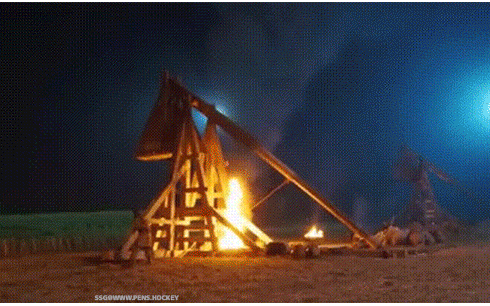
Once the COVID-19 pandemic forced the NHL and others in March to pause their seasons, a domino effect of delaying events followed. The NHL ultimately did not resume the 2019-20 regular season, choosing instead to call it done and begin the playoffs in early August. Typically by August, the Stanley Cup has been awarded, the individual awards handed out, the Entry Draft is held and free agency is more or less resolved. Instead, this year the Stanley Cup was only finally handed out just shy of three months ago on September 28, which is also roundabout the usual start of the NHL regular season.
Yesterday afternoon the NHL and the NHLPA came to an agreement on when to start what Gary Bettman referred to as the “2020-21 season,” as though 2020 will be any bit involved, beyond the roster movement that has occurred in the past few months. The NHL intends, with all the optimism anybody can hope for at this stage, to hold a 56-game regular season, which is better than what we usually get when there’s been a lockout or a strike, so we should probably be grateful for that.

In deference to the pandemic which continues to this day to infect thousands and kill hundreds per day in North America, the League had to navigate the varied local, state (or provincial, as the case may be), and federal regulations on traveling, and decided to realign the League and alter its format to limit the amount of travel teams will be doing. The League does appear to be wanting teams to play at their home venues, so there will be considerably more traveling than there was with the 2020 postseason, where teams were limited, with great success, to their hotels and the arenas in Edmonton and Toronto. I also understand that the League intends to acquire enough doses of the COVID-19 vaccines to inoculate players and staff, so there will be less concern about the chance of spreading the virus. But, the aforementioned realignment and change of format also appears to consider the possibility that the pandemic will remain widespread, and if there has to be another bubble situation, they’ll be able to more readily manage that.
Let’s talk about that realignment:

As we can see, all of the Canadian teams have their own division, while the remaining divisions are somewhat mashed up: the West Division is largely the Pacific Division but with two (formerly) Central Division foes; the new Central Division actually features just three teams from the previous Central Division; and the East Division is a 2-6 Atlantic-Metro split. Each division will only play within its own division, so the North Division teams will play its rivals 9-10 times this season, while the remaining divisions’ teams will play one another 8 times. This is double the number of games against intradivision opponents, which when added to the abbreviated schedule will likely lead to way more animosity. Then consider the first two rounds of the playoffs will be played intradivision (top four teams qualify), and you’ve got at most another seven games against two division rivals. If it all goes off without a hitch, it’ll be absolutely nuts.

For the Penguins part, at least the Twitter prognosticators like their odds to qualify for the playoffs. I’ve seen several projections putting the Penguins in the top three, once or twice as the #1 seed, which sounds optimistic to me but we’ll see. Frankly exchanging Carolina and Columbus for Boston and Buffalo sounds like a net gain, even if Boston was a Stanley Cup Finalist just two seasons ago. New Jersey and the Rangers are seemingly still rebuilding, the Capitals, like the Penguins, are aging, and I don’t think anyone has a clue what to expect from the Flyers and Islanders (although New York was a Conference Finalist last year).
We will get a chance to consider the Penguins’ chances a little more in depth as time goes on here, but at least we now know when they plan to start their next quest for the Stanley Cup.

